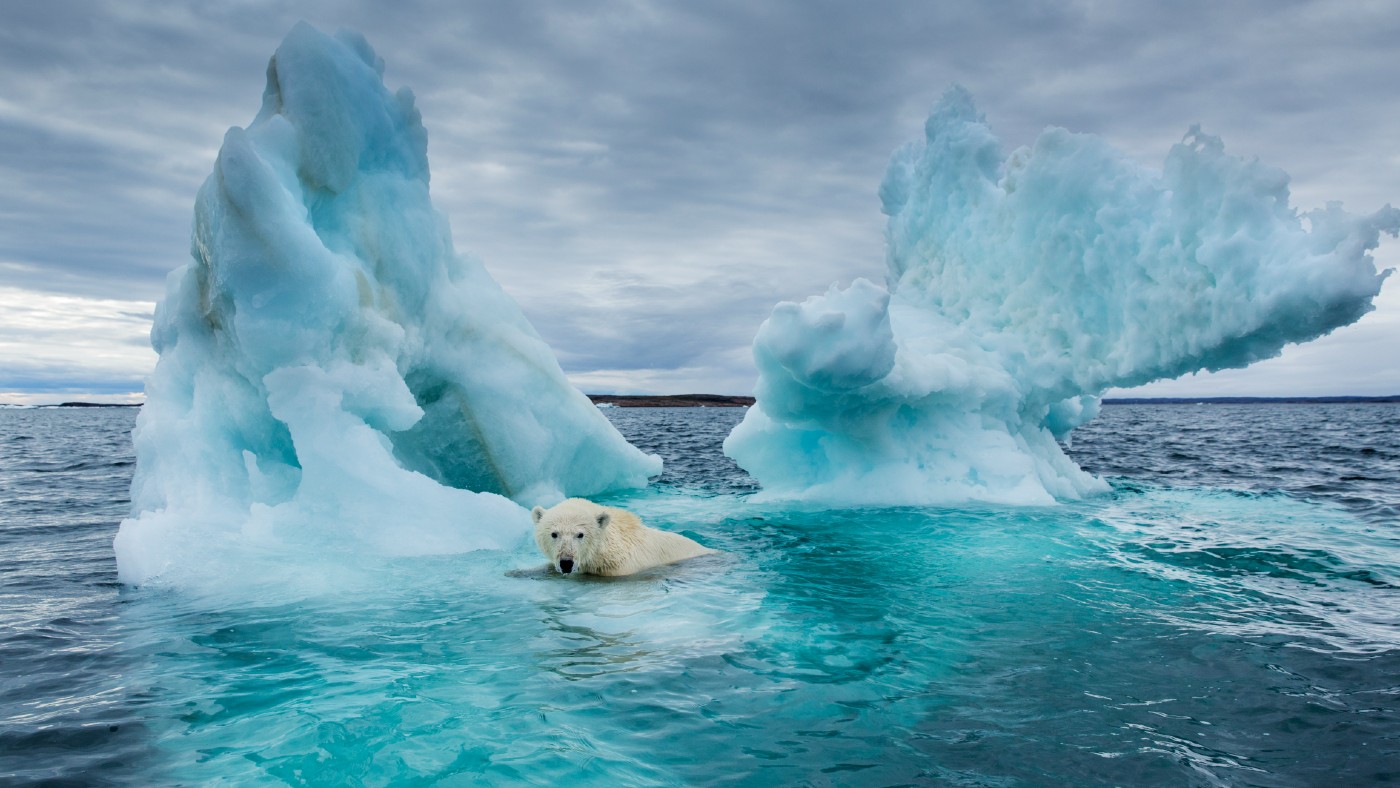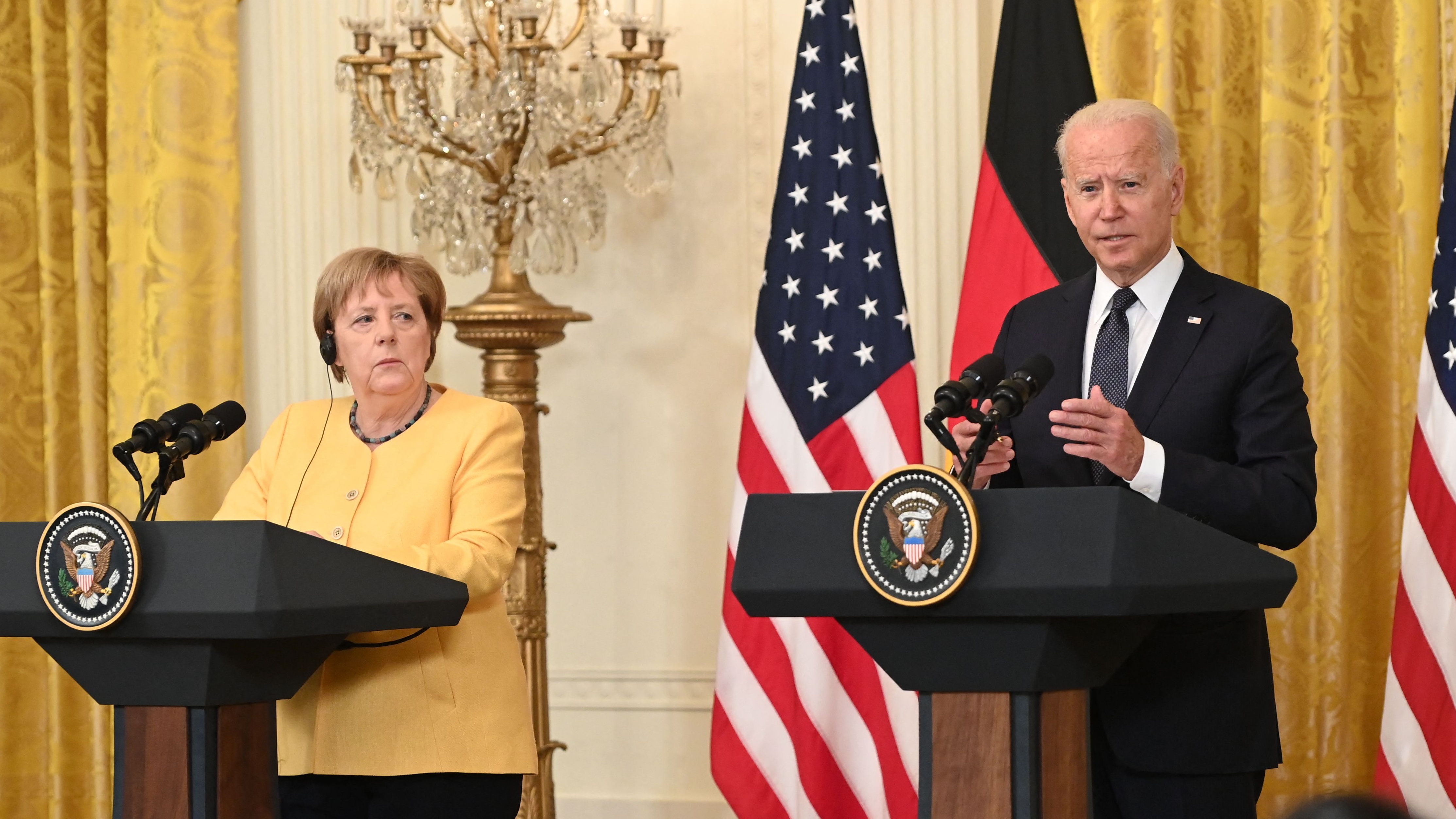The US state being ‘battered’ by ban on Russian oil imports
Mainland America does not rely on Russian crude – but Hawaii does

A free daily email with the biggest news stories of the day – and the best features from TheWeek.com
You are now subscribed
Your newsletter sign-up was successful
Hawaii is facing major economic losses after the state’s only oil refinery suspended purchases of Russian crude following Moscow’s invasion of Ukraine.
The island, located 2,000 miles from the US mainland, is “an anomaly among US states”, Fortune reported. While “the US consumes very little Russian oil” overall, Hawaii “imports several million barrels of Russian crude oil annually, accounting for 10% to 25% of Russian crude shipments” to the entire nation “depending on the year”.
“Converting crude oil into refined products” is “the beating heart of the state’s oil-dependent economy”, said The Economist. But with supplies cut as a result of Vladimir Putin’s invasion, “Hawaiians are not finding much relief from the energy crunch”.
The Week
Escape your echo chamber. Get the facts behind the news, plus analysis from multiple perspectives.

Sign up for The Week's Free Newsletters
From our morning news briefing to a weekly Good News Newsletter, get the best of The Week delivered directly to your inbox.
From our morning news briefing to a weekly Good News Newsletter, get the best of The Week delivered directly to your inbox.
Customer concerns
Russian oil accounts for about 3.5% of total US consumption. But supplies from Russia “accounted for up to a third of Hawaii’s crude oil in recent years, much of it used for jet fuel”, Associated Press (AP) reported. Other nations that deliver oil to the island nation include Libya and Argentina.
Shortly after Putin gave the order for his troops to invade Ukraine, Par Pacific Holdings, owner of the state’s only oil refinery, announced that it was suspending all purchases of Russian oil.
According to the Honolulu Star-Advertiser, the company insisted that “island consumers should not expect oil supply disruptions or significant price increases”, with the shortfall to be made up through oil deliveries from North and South America.
The decision to ditch Russian oil was applauded by politicians as a show of support for Ukraine. Democrat lawmaker Patrick Pihana Branco told AP that “Ukraine is fighting to enjoy the same basic rights that Americans are promised at birth – free speech, security in a democratic society and equal protection under the law”.
A free daily email with the biggest news stories of the day – and the best features from TheWeek.com
The move was also backed by utility providers. In a statement, Shelee Kimura, CEO of Hawaiian Electric, said: “We met with Par Hawaii and expressed our concerns about buying oil from Russia, and we heard from customers who had similar concerns. Par Hawaii’s decision to suspend oil imports from Russia is the right thing for Hawaii and for Ukraine.”
Hawaiian Electric, the island’s largest utility, is “one of Par Hawaii’s biggest customers”, AP reported, “using 338m gallons of fuel oil in 2021”.
But while suppliers promised that the shift away from Russian oil would not have too high a cost, both the island’s economy and consumers are already being “battered”, The Economist said.
Rock and a hard place
“Under Hawaii’s utility regulations, the cost of fuel is passed on to customers”, who are already seeing “a significant increase in their energy bills”, Fortune reported.
“One reason Hawaii relies so heavily on Russian crude oil is because of the 1920 Jones Act”, which legislates that “cargo sent by sea between US ports must travel on ships that are built, owned, and staffed by Americans”, the site continued.
“Those shipments are very expensive, and so to cut down on costs, large Hawaiian refineries tend to import their oil from abroad.”
Diversification of the island’s energy supply has also proved difficult. “A state law passed in 2015 mandates 100% clean energy in electricity by 2045,” said The Economist, “the first such goal set by an American state, building on targets established in 2007.” As a result, “the state now has the second-highest number of electric vehicles per head in America”.
But achieving Hawaii’s goal of “weaning itself off oil” is “not simple”, the paper added. “Rules written to protect Hawaii’s natural environment hinder renewable-energy projects, lest wind turbines interfere with migratory birds or hydropower displace a rare species.”
And “fights over land use pit environmentalists and local communities against one another” too.
When the Russian oil ban was announced, Par Pacific promised to “work closely with our customers and partners in state government to make prudent decisions in support of energy assurance for Hawaii”.
But Hawaii now appears to be caught between a rock and a hard place in a race for oil that is “already hitting consumers’ wallets hard across the US”, Fortune said.
-
 Political cartoons for February 16
Political cartoons for February 16Cartoons Monday’s political cartoons include President's Day, a valentine from the Epstein files, and more
-
 Regent Hong Kong: a tranquil haven with a prime waterfront spot
Regent Hong Kong: a tranquil haven with a prime waterfront spotThe Week Recommends The trendy hotel recently underwent an extensive two-year revamp
-
 The problem with diagnosing profound autism
The problem with diagnosing profound autismThe Explainer Experts are reconsidering the idea of autism as a spectrum, which could impact diagnoses and policy making for the condition
-
 Do polar bears no longer need saving?
Do polar bears no longer need saving?feature New study offers ‘glimmer of hope’ for some polar bears – but with caveats
-
 What does Russia’s war in Ukraine mean for UK?
What does Russia’s war in Ukraine mean for UK?feature Significant increases in petrol and gas prices expected to follow Kremlin invasion
-
 Everything we know so far about Kazakhstan’s state of emergency
Everything we know so far about Kazakhstan’s state of emergencyIn Depth Government forced to resign amid protests over fuel prices
-
 Kim Jong Un’s sister warns of US and South Korea ‘invasion’ plot
Kim Jong Un’s sister warns of US and South Korea ‘invasion’ plotfeature Kim Yo Jong says military rehearsals are ‘undesirable self-destructive act’
-
 Germany sidelines eastern European fears to strike US deal on Nord Stream 2
Germany sidelines eastern European fears to strike US deal on Nord Stream 2Under the Radar Joe Biden accused of ‘total surrender to Putin’ over controversial gas pipeline